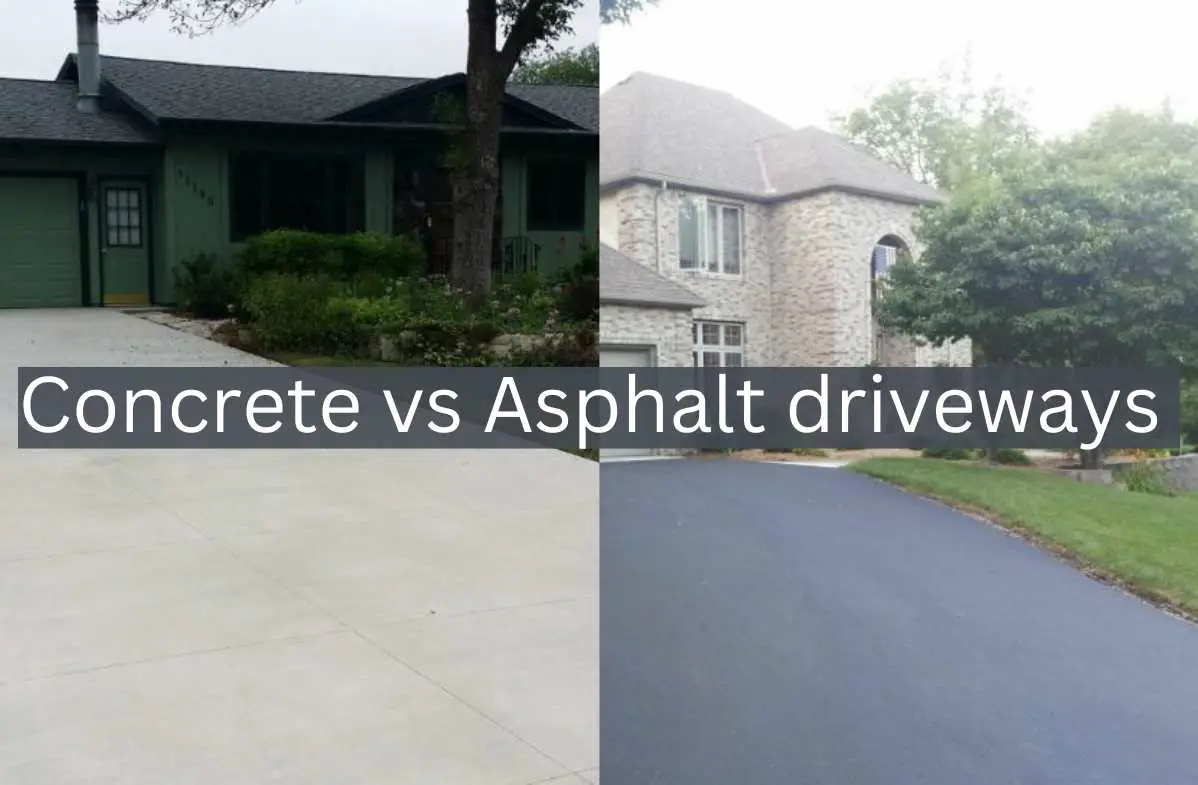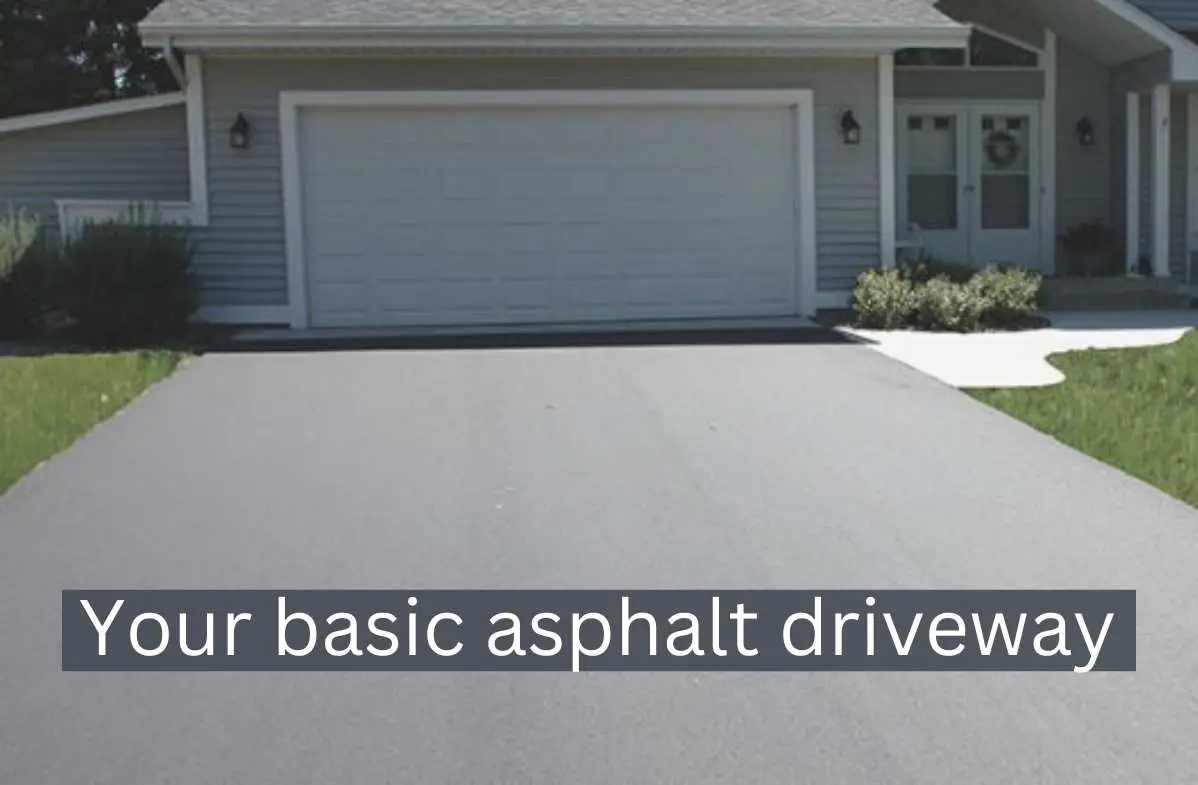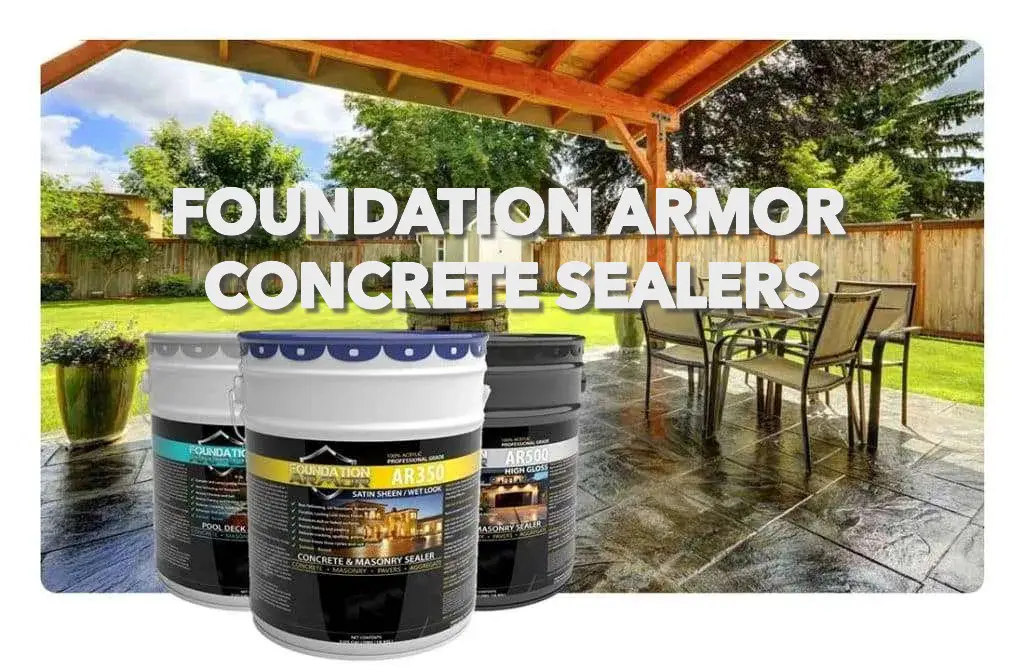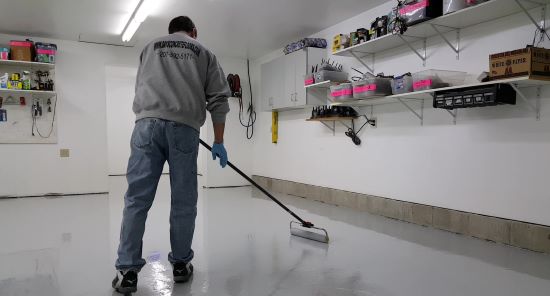Comparing concrete vs asphalt driveways
the pros & cons and how much they cost

Concrete and asphalt are two of the most common materials used for driveways.
If you're planning to install a new driveway or replace an existing one, you might be wondering which one is the best option for your needs.
In this article, we'll compare concrete vs asphalt driveways and highlight the key differences between the two materials.
Plus, we will uncover the cost of concrete vs. asphalt and the factors that determine
their overall cost.
Table of Contents:
- Introduction
- Concrete Driveways: Pros and Cons
- Asphalt Driveways: Pros and Cons
- Concrete vs Asphalt Driveways: Cost Comparison
- Maintenance and Repair
- Durability and Lifespan
- Aesthetics and Curb Appeal
- Environmental Impact
- Which One Is Right for You?
- Conclusion
- FAQs
introduction: is one better than the other?
The driveway is often the first thing people notice when they visit your home.
It's not just a functional feature but also adds to the overall curb appeal of your property.
When it comes to choosing the right material for your driveway, you'll need to consider various factors such as cost, maintenance, durability, and aesthetics.
Let's take a closer look at the pros and cons of concrete and asphalt driveways.
concrete driveways: pros and cons

Concrete driveways are a popular choice for homeowners, and for good reasons. Here are the pros and cons of concrete driveways:
pros of having a concrete driveway
- Durability: Concrete is very durable, if properly installed it can withstand heavy loads and last for several decades.
- Low Maintenance: Concrete driveways require very little maintenance, an occasional pressure washing is usually enough to keep them looking good.
- Design Flexibility: Concrete driveways can be stamped, integrally colored, or stained to create unique and attractive designs.
- Resistant to Weather and Temperature Fluctuations: Concrete can withstand extreme weather conditions, including freezing temperatures and hot summers.
- They Reflect light: The lighter color of concrete tends to stay cooler in the summer and brighter at night under outside lights
- Can be heated: Installing radiant heat tubing in the concrete when it's being poured will allow you to heat the concrete and melt away ice and snow in the winter months.
cons of having a concrete driveway
- Installation cost: Concrete driveways can be expensive, especially if you choose custom designs or high-end finishes.
- Cracking: Concrete driveways may develop cracks if not installed correctly due to the natural expansion and contraction caused by temperature changes and heavy loads.
- Staining: Concrete is porous and can absorb stains, making it challenging to remove oil, coolant, wine or even coffee stains.
- Long Curing Time: Concrete driveways take several days to cure and reach full strength, so you'll need to plan accordingly if you have to park a vehicle on it.
- Salt & De-icing: Using salt or de-icing materials to melt snow and ice could damage the surface of concrete by causing spalling or pitted areas.
asphalt driveways: pros and cons

Asphalt driveways are another popular choice for homeowners, particularly in areas with cold climates.
Here are the pros and cons of asphalt driveways:
pros of having an asphalt driveway
- Cost-Effective: Asphalt driveways are generally more affordable than concrete driveways, making them an excellent option for homeowners on a budget.
- Quick Installation: Asphalt driveways can be installed quickly, usually within a day or two.
- Easy to Repair: If an asphalt driveway develops cracks or potholes, they can be easily repaired using a sealant or patching material.
- Provides Good Traction: Asphalt is a rough material that provides good traction, making it an excellent option for areas with frequent rainfall or snow.
- Absorbs heat: The black color of asphalt absorbs the sun's heat and gets warm in the winter, this can help melt snow and ice.
cons of having an asphalt driveway
- Less Durable: Asphalt driveways are not as durable as concrete driveways and could get damaged by heavy vehicles.
- High Maintenance: Asphalt driveways require regular maintenance, including sealing every few years to prevent damage.
- Can get soft in high temperatures: Asphalt tends to soften in very high temperatures and could be prone to damage from a vehicles turning tires or a motorcycle kickstand.
- Can get very hot in the summer: Black asphalt absorbs the sun's heat and can feel very hot on your feet to walk on.
- Asphalt can crack or sag: The cycling of high temperature days and cool nights can cause asphalt to develop cracks from expanding and contracting or low spots from a vehicle's tires parking on it.
cost comparison of concrete vs asphalt driveways
If you're in the market for a new driveway, you might be wondering whether to choose concrete or asphalt.
Both materials have their own unique benefits and drawbacks, and the cost comparison between the two can be a significant factor in your decision-making process.
While asphalt driveways are generally less expensive than concrete driveways, the overall cost can vary depending on a range of factors.
Let's take a closer look at the cost comparisons between concrete vs asphalt driveways and help you make an informed decision for your home.
installation cost of a concrete driveway
The cost of installing a concrete driveway can vary depending on several factors, including the size of the driveway, the strength of the concrete used, and the complexity of the design.
On average, you can expect to pay between $7 to $12 per square foot for a basic concrete driveway installation.
This means that the national average cost to install a 2 car concrete driveway, which typically measures 16 feet by 38 feet, is between $4256.00 to $7296.00.
However, keep in mind, that's just for the installation of the concrete. When you add site prep, gravel, grading, compaction, landscaping, and any demo of an existing driveway, the cost can easily be double the above figures or more.
If you choose to add decorative finishes, such as stamped or stained concrete, plan to spend $15 to $25 per square foot, and again, that's just for the cost of the concrete installation.
It's always a good idea to get quotes from multiple contractors and compare prices before making a final decision.
installation costs of an asphalt driveway
Asphalt driveways are generally less expensive than concrete driveways, making them an attractive option for homeowners on a budget.
On average, you can expect to pay between $5 to $8 per square foot for a basic asphalt driveway installation.
This means that the national average cost to install a 2 car asphalt driveway, which typically measures 16 feet by 38 feet, is between $3040.00 to $4864.00.
Like above, these prices are just for the installation of the asphalt driveway. Additional costs from site prep, road base, grading, drainage, and landscaping can double or triple that cost.
what can i expect to pay for site prep, excavation, grading, and landscaping before the driveway is installed?
When it comes to installing a new concrete or asphalt driveway, the cost of site preparation, excavation, grading, compaction, and finished landscaping can vary significantly depending on the size and complexity of the project.
Site preparation typically involves removing any existing driveway or vegetation, and ensuring the site is level and ready for excavation.
This can cost anywhere from a several hundred to a few thousand dollars, depending on the extent of the preparation required.
Excavation is the process of removing soil and debris from the site to create a level base for the driveway. It also includes adding road base or gravel to ensure the driveway has a proper base.
This can cost between $3 to $6 per square foot, or around $1800 to $3600 for a 16 ft. by 38 ft. driveway.
Grading and compaction are necessary to ensure the driveway is level and will not settle or crack over time.
Grading involves shaping the gravel and creating a gentle slope to ensure proper drainage, while compaction involves compacting the gravel to create a firm base for the driveway.
The cost of grading and compaction can vary depending on the complexity of the site, but typically range from $1,000 to $3,000.
Finished landscaping involves the final touches to the site, including adding loam, grass, plants, flowers, and other landscaping elements.
This can cost anywhere from a thousand dollars to several thousand, depending on the scope of the project.
Overall, the cost of site preparation, gravel, excavation, grading, compaction, and finished landscaping can add several thousand dollars to the overall cost of installing a concrete or asphalt driveway.
It's important to note these are just estimated costs and can be a lot more depending on where you live and who you hire to do the work.
maintenance and repair
Both concrete and asphalt driveways require maintenance to keep them in good condition.
For concrete driveways, I like to pressure wash it once a year for cleaning and re-sealing every couple years are usually enough to prevent damage from weather and stains.
Asphalt driveways require re-sealing every year to prevent damage from UV rays, water, and chemicals.
If an asphalt driveway develops cracks or potholes, they can be easily repaired using a sealant or patching material and the repairs tend to blend in quite well.
Concrete driveways, on the other hand, may require more expensive repairs to fix cracks or damage from salt & deicing materials. Patched and repaired areas on a concrete driveway don't blend in as well and are more noticeable.
durability and lifespan
When it comes to durability and lifespan, concrete driveways are generally more durable and last longer than asphalt driveways.
A properly installed and maintained concrete driveway can last for up to 30 - 40 years or more, while an asphalt driveway may last 20 - 30 years.
Both driveways lasting this long are very dependent on having the sub-base of gravel and prep done correctly.
Concrete usually holds up better to heavy trucks like oil and propane trucks, making it a better option for homes with these deliveries.
Aesthetics, curb appeal, and added value
Both concrete and asphalt driveways can be designed to be an attractive part of your overall landscaping and improve the look of your home.
Concrete driveways can be stamped, stained, or etched to create unique designs, while asphalt driveways can be colored or enhanced with aggregates.
Concrete driveways are generally considered more attractive than asphalt driveways, but the choice ultimately depends on your personal preferences.
Installing a concrete or asphalt driveway can be a significant investment, but it can also increase the overall value of a home.
The exact amount of value a new driveway adds to a home can vary depending on several factors, including the quality of the installation, the size and design of the driveway, and the local real estate market.
On average, a new driveway can add between 5% to 10% of the home's value. For example, if your home is worth $300,000, a new driveway could add between $15,000 to $30,000 to the value of your home.
In some areas, a new driveway may be a significant selling point and add more value to a home. In other areas, a new driveway may not have as much of an impact on the overall value of the home.
Additionally, a new driveway can improve the curb appeal of a home, making it more attractive to potential buyers. This can be particularly important in a competitive real estate market where even small details can make a big difference in the buying decision.
is one better for the environment than the other
When it comes to environmental impact, both concrete and asphalt driveways have their pros and cons.
Concrete is made from natural materials and can be crushed and recycled into aggregate for reuse, making it a more eco-friendly option.
However, the production of Portland cement, an ingredient used to make concrete requires a lot of energy, which can contribute to greenhouse gas emissions.
Asphalt, on the other hand, is made from petroleum-based products and is not as easily recyclable. Although, it can be melted down and used again to pave new roads, this process also creates greenhouse gases.
Which one is right for you: factors to consider
Choosing between a concrete driveway and an asphalt driveway can be a difficult decision, as both materials have their own unique benefits and drawbacks.
Here are some of the key factors to consider when making this decision:
- Climate: The climate of your location is an important factor to consider, as it can affect the durability and longevity of the driveway. In areas with hot summers, concrete may be a better option, while asphalt may be better suited for areas with cold winters.
- Cost: The cost of the driveway is an important consideration for many homeowners. Asphalt is generally less expensive than concrete, but the cost can vary depending on the size and complexity of the project.
- Maintenance: The maintenance required for each material is another important factor to consider. Asphalt requires regular sealing to prevent damage from UV rays, water, and chemicals, while concrete is generally easier to maintain.
- Durability: The durability of the material is an important consideration. Concrete is generally considered to be more durable and longer-lasting, while asphalt is more flexible and can expand and contract with temperature changes.
- Appearance: The appearance of the driveway is also an important consideration, as it can affect the curb appeal of the home. Concrete is available in a wide range of colors and patterns, while asphalt has a more uniform appearance.
- Environmental impact: The environmental impact of the material is another factor to consider. Asphalt is made from petroleum and is not considered to be an environmentally friendly material, while concrete can be made from recycled materials.
Overall, the choice between a concrete driveway and an asphalt driveway comes down to personal preference and your specific needs.
which driveway, asphalt or concrete, holds up better in hot climates?
If you live in a hot climate, 80 degree F temperatures or higher, both asphalt and concrete have their pros and cons.
Asphalt is known for its ability to expand and contract with temperature changes, however, high temperatures can cause asphalt to soften and become more susceptible to damage from heavy vehicles.
Also, because it's a dark color, asphalt absorbs heat making the driveway very hot for foot traffic.
Concrete, on the other hand, is more durable and can hold up better in hotter climates.
It won't get soft like asphalt or become damaged from high temperatures. However, it's important to note that extreme heat can also cause concrete to expand and crack, particularly if it is not properly installed
Concrete also reflects light and will not absorb heat as much as asphalt does, so it feels much cooler to touch.
Ultimately, the choice between asphalt and concrete for hotter climates depends on your budget and preferences.
is concrete better than asphalt in cold climates?
The climate where you live is an important factor to consider when choosing the right material for a driveway. In colder climates with harsh winters, asphalt is often the superior choice due to several key reasons.
- Concrete is prone to frost heaves, expansion, and contraction caused by temperature changes during the winter months, which can cause damage and deterioration over time. This makes it less suitable for use in areas that experience extreme cold weather.
- The use of salt to melt snow and ice on concrete can cause significant damage to the surface. The salt can penetrate the surface and cause pitting, spalling, cracks and potholes.
- In contrast, asphalt is much more resistant to the damaging effects of salt, making it a better option for areas that rely on deicing agents to combat winter weather conditions.
- Another benefit of asphalt in colder climates is that it absorbs more heat from the sun than concrete, which causes snow and ice to melt more quickly. This can be particularly useful in areas that experience frequent snowfall and require a lot of snow and ice removal.
In summary, while both concrete and asphalt have their own unique benefits and drawbacks, asphalt is often the superior choice for colder climates due to its durability, resistance to salt damage, and efficient melting of snow and ice.
Frequently asked questions:
Here are some FAQ's that may be of interest to you:
Which is better asphalt or concrete?
- The choice between asphalt and concrete depends on several factors, including climate, cost, and durability.
Is it cheaper to pour concrete or asphalt?
- Asphalt is generally less expensive than concrete, but the cost can vary depending on the size and complexity of the project.
Why use asphalt instead of concrete?
- Asphalt is more flexible than concrete, which makes it a good option for areas with temperature changes, and it is also less susceptible to salt damage.
Is concrete better than asphalt in cold climates?
- Asphalt is generally a better choice for colder climates because it does not deteriorate from salt use and it absorbs more heat from the sun, which helps melt snow and ice.
What is the best low-maintenance driveway?
- Both concrete and asphalt can be low-maintenance options, but asphalt may require more frequent sealing to prevent damage from UV rays and chemicals.
What type of driveway lasts the longest?
- Concrete driveways can last 30 - 40 years or more with proper maintenance, making them a long-lasting option.
What is the best type of driveway to have?
- The best type of driveway depends on the specific needs and preferences of the homeowner, as well as the climate and local real estate market.
How long will a concrete driveway last?
- A concrete driveway can last for 30 to 40 years or more if installed correctly and properly maintained.
What is the lifespan of asphalt driveway?
- An asphalt driveway can last up to 20 years or more with proper maintenance.
Why does Texas use concrete instead of asphalt?
- Concrete is often used in Texas because it can withstand the high temperatures and heavy traffic of the region.
Why are US roads concrete?
- Concrete is often used for US roads because it is durable and long-lasting, and it can handle heavy traffic and extreme weather conditions.
Can you put asphalt over concrete?
- Yes, it's possible to put asphalt over a concrete driveway, but it may require additional preparation and may not last as long as a traditional asphalt driveway.
Which freezes faster concrete or asphalt?
- In general, asphalt freezes faster than concrete, but the difference may not be significant.
Does snow melt faster on asphalt or concrete?
- Asphalt pavement absorbs more heat from the sun, which can help snow and ice melt faster than on a concrete driveway.
What gets hotter in the sun asphalt or concrete?
- Asphalt pavement can get hotter in the sun than concrete, which may be a consideration in areas with hot summers.
Does a concrete driveway increase home value?
- Yes, a new driveway can add value to a home, regardless of whether it is made of concrete or asphalt.
What is a cheap alternative to concrete driveway?
- Gravel or crushed stone can be a more affordable alternative to a traditional concrete driveway, but may require more frequent grading and maintenance.
in conclusion:
Choosing between a concrete or an asphalt driveway requires careful consideration of several factors such as climate, cost, maintenance, and durability.
Concrete driveways are more durable and have a longer lifespan, but they can be more expensive and susceptible to damage in colder climates.
In contrast, asphalt driveways are more affordable, but they require more frequent sealing to prevent damage from the sun and rain.
Ultimately, the decision between a concrete or asphalt driveway comes down to personal preference, specific needs, and budget.
Consult with a professional asphalt and concrete contractor to help you make the best choice for your home and location.
SEE ALSO: What does a concrete driveway cost














